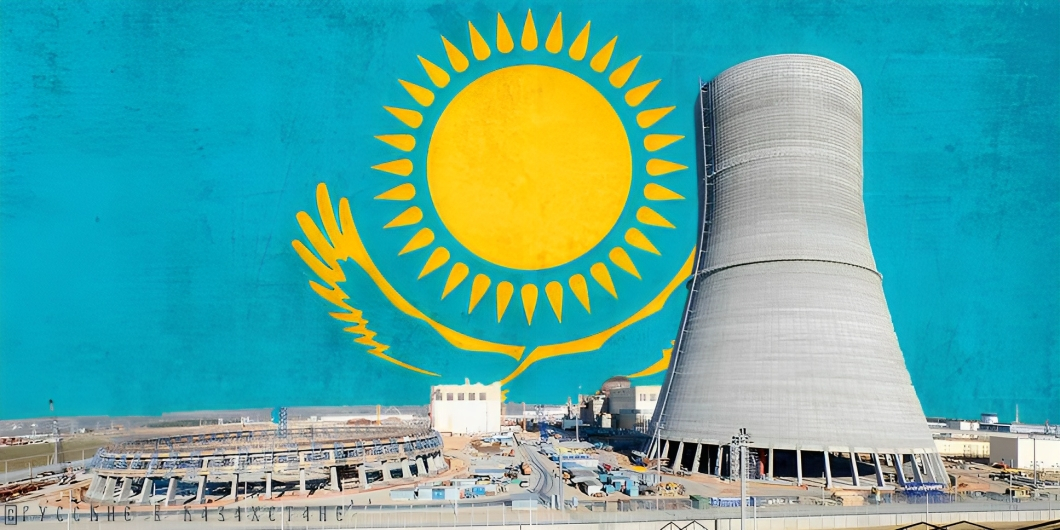The head of the Kazakhstan Atomic Power Stations joint-stock company, Timur Zhantikin, stated that the construction of the country’s first nuclear plant may cost up to $15 billion.
“The cost is 10-15 billion dollars for the initial station. Because it [the station] is the first one. Funding sources are currently being explored, predominantly involving international financial institutions. The project is yet being approached as a commercial endeavor, without government interference. Accordingly, there are specific conditions there,” Vlast.kz quoted Zhantikin as saying on December 21.
He added that they were not currently implementing the project, and the work conducted before the project was in progress. In other words, they were exploring various options for the first nuclear power plant in Kazakhstan, and at present, this constituted preliminary work.
Zhantikin mentioned that out of the 13 proposed projects for Kazakhstan in this field, four were deemed “most suitable for implementation” in the country.
“These are pressurized water reactors, commonly known as PWRs. This reactor type is the most widely used worldwide and is renowned for its reliable performance. In other words, it boasts high safety levels and acceptable economic indicators. Currently, we are delving into a more detailed examination of these four projects,” he explained.
According to him, the station is supposed to be launched by 2035, and currently, “only one site,” near the village of Ulken on the shores of Lake Balkhash in southeastern Kazakhstan, is being considered for the plant’s construction.
In September 2021, Kazakh President Kassym-Jomart Tokayev ordered a study on the feasibility of developing safe and environmentally friendly nuclear energy. Several days later, he expressed the need for a nuclear power station, and Russian President Vladimir Putin offered assistance in building a nuclear industry in Kazakhstan. In September 2023, President Tokayev announced that the construction of a nuclear power plant would be subject to a referendum, though no date has been set yet.
However, public opposition has arisen in Kazakhstan due to the negative environmental and health impacts of nuclear testing conducted at the Semipalatinsk test site in the northeastern Abay Region between 1949 and 1989. Despite this, the Kazakh authorities have chosen the village of Ulken on the banks of Balkhash Lake as the potential site for the plant’s construction. Kazakhstan is currently evaluating several suppliers, including China National Nuclear Corporation, Korea Hydro & Nuclear Power, Électricité de France, and Russia’s Rosatom.
As of August 2023 World Nuclear Association (WNA) data, Kazakhstan possesses 12% of the world’s uranium resources. In 2022, Kazakhstan produced the largest share of uranium from mines, accounting for 43% of the world’s supply.
According to Kazakhstan’s national nuclear energy company, Kazatomprom, uranium output is expected to range from 20,500 to 21,500 tonnes by the end of 2023. Forecasts indicate an extraction of 25,000 to 25,500 tonnes of uranium in the country next year. The target is to reach a production volume of 30,000 tonnes in 2025, achieving maximum design capacity.
Kazakhstan supplied Russia with uranium worth $1.2 billion and China with $922.7 million from January to October 2023. The supplies to China experienced a 2.2-fold surge year on year.







 President Ilham Aliyev shed light on the evolving contours of the peace process with Armenia during an international conference in Baku this week. ...
President Ilham Aliyev shed light on the evolving contours of the peace process with Armenia during an international conference in Baku this week. ...
 Azerbaijan and Armenia started the process of demarcation of their border on Tuesday, with the installation of the first border markers based on ge...
Azerbaijan and Armenia started the process of demarcation of their border on Tuesday, with the installation of the first border markers based on ge...
 Iranian President Ebrahim Raisi expressed Tehran’s readiness to participate in significant development projects in Sri Lanka during the inauguratio...
Iranian President Ebrahim Raisi expressed Tehran’s readiness to participate in significant development projects in Sri Lanka during the inauguratio...
 As the conflict between Ukraine and Russia escalates, the strategic importance of Kharkiv, Ukraine's second-largest city, has come sharply into focus.
As the conflict between Ukraine and Russia escalates, the strategic importance of Kharkiv, Ukraine's second-largest city, has come sharply into focus.
 Iran and Pakistan have signed eight cooperation documents in various fields, and agreed to strengthen ties to fight terrorism in the region.
Iran and Pakistan have signed eight cooperation documents in various fields, and agreed to strengthen ties to fight terrorism in the region.



